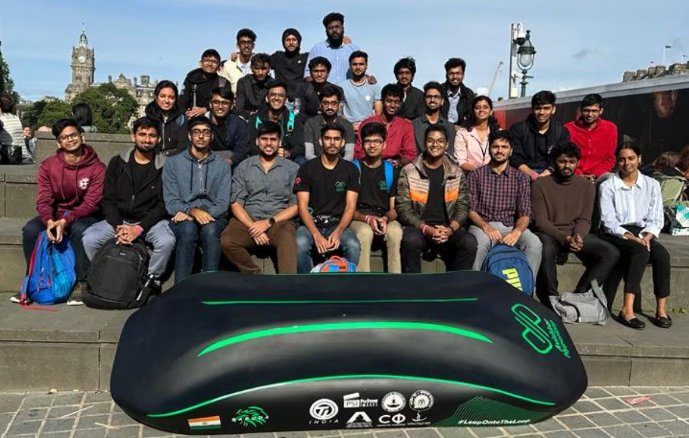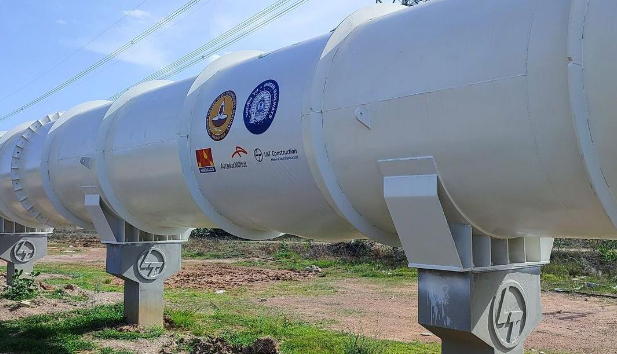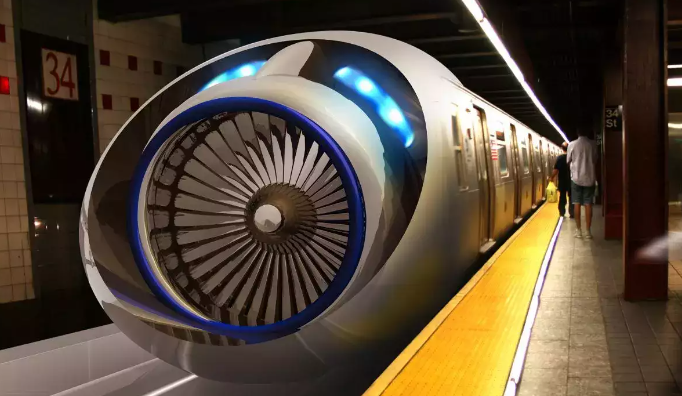In a groundbreaking step toward revolutionizing India’s transportation sector, IIT Madras has successfully developed a 410-meter-long Hyperloop test track, marking a significant milestone in the country’s adoption of high-speed, energy-efficient transit systems.
This ambitious project is spearheaded by the Avishkar Hyperloop team from IIT Madras, in collaboration with TuTr, an incubated startup. Union Railway Minister Ashwini Vaishnaw announced the achievement, sharing a video of the track and highlighting the combined efforts of the Railways, IIT Madras, and TuTr.

Hyperloop Technology: What It Means for India
The Hyperloop is a next-generation electric transportation system where pressurized pods travel at incredible speeds through vacuum-sealed tubes, minimizing friction and maximizing efficiency. With potential top speeds of 1,100 km/h and operational speeds of around 360 km/h, this technology is set to redefine the future of travel.
Each Hyperloop pod, designed to carry 24-28 passengers, offers direct, non-stop travel between destinations. Beyond speed, the Hyperloop boasts energy efficiency and reduced emissions, making it a cleaner alternative to traditional modes of transportation.
IIT Madras and TuTr Collaboration
The Avishkar Hyperloop team consists of 76 undergraduate and postgraduate students working in tandem with TuTr to develop and validate the Hyperloop technology. The project is planned in two phases:
- Phase 1: Construction of an 11.5-kilometer test track to validate and certify the technology.
- Phase 2: Extension of the track to nearly 100 kilometers upon successful trials.
This collaboration not only highlights India’s technical capabilities but also showcases the role of academic institutions and startups in advancing cutting-edge technologies.

Mumbai-Pune Hyperloop: India’s First Full-Scale Project
India’s first full-scale Hyperloop project is envisioned along the Mumbai-Pune corridor. This ambitious initiative aims to slash travel time between the two cities from hours to just 25 minutes. While still in the early stages, the project underscores the immense potential of Hyperloop technology in enhancing connectivity and economic activity.
Why Hyperloop Matters
Hyperloop technology offers several advantages:
- Speed and Convenience: Travel faster than traditional modes with point-to-point access.
- Energy Efficiency: Reduced energy consumption due to the frictionless environment.
- Environmental Benefits: Cleaner and greener transit systems to combat pollution.
- Economic Growth: Enhanced connectivity can boost regional economies and reduce travel costs over time.
India’s successful completion of the 410-meter test track is a major step toward adopting futuristic transport solutions. With its promising potential, the Hyperloop could soon become the backbone of high-speed travel in the country.


